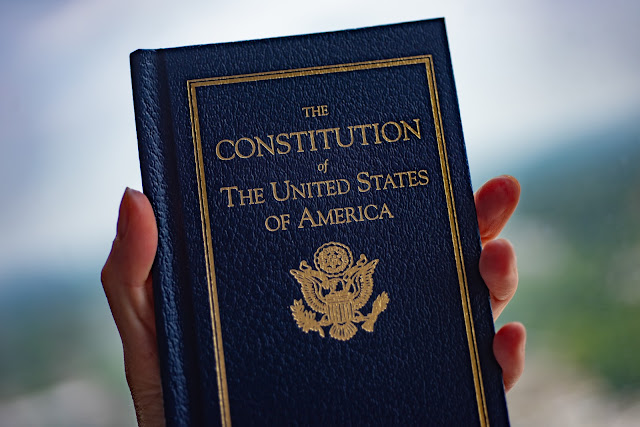LTP News Sharing:
For the 2025 New Year:
I resolve to be unafraid to embrace my freedom of speech as guaranteed to me — and all Americans — by the First Amendment to our United States Constitution.
The reason for my resolution:
I believe we must have the freedom to express a difference of opinion and, unless rallying people to violence, there is no “hate” speech. Indeed, some people may feel uncomfortable by speech they deem “offensive” but so what? The offended persons are not otherwise impaired and their “feelings” have no precedent over the universal right to freedom of speech. And yes, you can yell “fire” in a crowded theater but you must be prepared to suffer the consequences of legal prosecution for any harm you cause. This reality underpins why free speech is a universal right.
Here is my first expression of my freedom of speech:
I’m a capitalist/conservative and I do not agree with socialist/progressive ideology.
So, what prompted me to make this pronouncement?
In essence, while listening to a radio program, I heard a caller who identified himself as a “socialist progressive” opine that Americans who believe in “capitalism” are evil because our “capitalist nation” embraced slavery.
As is attributed to Voltaire, “I may disagree with what you say, but I will defend your right to say it.” This sentiment expressed by Voltaire that I espouse captures the essence of upholding freedom of speech even when you don’t agree with the opinion being expressed.
Here is why I disagree, respectfully, with that caller.
I was born and reared in a Southern state, Georgia, and during my formative years, I was taught to believe that slavery was an evil institution that was unique to America. Even so, I was taught to love our country because, despite the stain of slavery, America is also the land of freedom and opportunity.
I was encouraged to get a good education and work hard so that I could rise above the impoverished conditions into which I was born. To make a long story short, I followed that advice which is why I was able to reach my current level of accomplishment. For those who are interested, my brief biography is posted at this link.
After having spent twenty years of my life in the military, serving my country starting in 1964, mostly when it was tough being a woman, and a black one at that, in a male-dominated combat-oriented world, I decided to spend my retirement years relaxing and enjoying life.
However, I became concerned when I observed that, in recent years, black children were being taught to hate America and view themselves as victims of racial oppression that had not ended since the days of slavery. As a consequence, they were no longer being encouraged to get a good education and work hard to achieve success.
In response, I began an educational campaign to inspire at-risk youth to succeed by delving into the annals of black history and uncovering stories of successful black Americans, like myself, who had persevered and achieved in the face of obstacles.
During my journey of discovery, I uncovered information about the ancient origins of slavery, including the fact that slavery did not start in 1619. It began with kings. Whenever you had the first king on top you had slaves on the bottom. All ancient cultures made slaves of those captured in battle, as seen in Babylon, Persia, Greece, China, India, and Africa. This slavery history capsule is included on my new website along with a more detailed article, The History of Slavery: “Revelations” by Historian Bill Federer, at this link.
Here is the list of topics that are covered briefly in Federer’s article as posted on my website with illustrative images provided by me:
The Ancient Origins of Slavery
Slavery in America
A Black Man Owned the First Life-Time Slave
England’s Irish Slaves
The Triangle Slave Trade
Native American Slave Owners
The Abolition Movement:
Birthed Out of Christianity
The End of Slavery in America
The Amistad
The Political Battle to End Slavery
The Emancipation Proclamation
Modern-Day Slavery
Posted also on my website are these topics:
The Two Civil Rights Eras: A Comparison
– The Civil Rights Movement of the 1800s (1865–1896)
– The Modern Civil Rights Movement (1954-1964)
Civil Rights: Myths and Facts Articles (with links to the posted articles)
Author: Frances Rice







